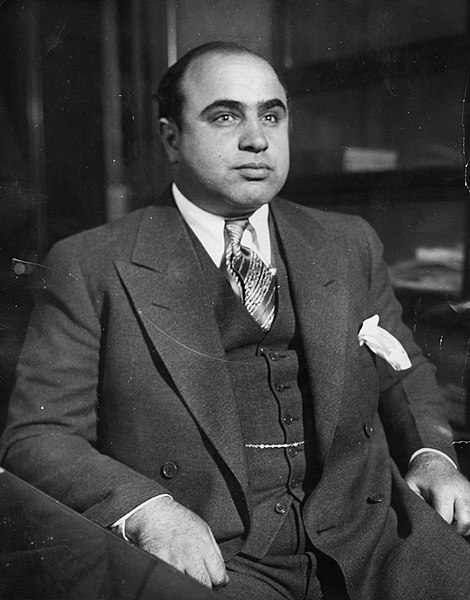 |
| (source) |
A sensei once told me a story about a poor Japanese peasant farmer and his feudal lord. This is my rendition of it.
 |
| (source) |
"But with the development of industry, the proletariat not only increases in number; it becomes concentrated in greater masses, its strength grows, and it feels that strength more. … Thereupon, the workers begin to form combinations (Trades' Unions) against the bourgeois; they club together in order to keep up the rate of wages; they found permanent associations in order to make provision beforehand for these occasional revolts. Here and there, the contest breaks out into riots.
"Now and then the workers are victorious, but only for a time. The real fruit of their battles lies, not in the immediate result, but in the ever expanding union of the workers." (The Communist Manifesto)How old is the communist/socialist movement? I can't answer that with any precision. For my purposes, let's say it's 168 years old, and started in 1848 with the publication of the Communist Manifesto. That's an arbitrary and questionable answer. Still, I hope you'll indulge me: the Manifesto has been translated to at least 80 languages, and is considered a very influential work. It often is the first -- in many cases, doubtless the only -- Marxist text readers encounter.
"Business annual reports provide two basic accounting statements—a balance sheet, which is also termed a statement of condition, and an income statement. A firm's balance sheet lists the dollar value of its assets and liabilities as of a specific date. A firm's income statement lists its revenues and expenses (the difference being profit) for a year. Similar statements are prepared on a national level in the United States. Analogous to a firm's income statement, a nation's production of goods and services for a year (as well as its spending and saving decisions) are summarized in its gross national product (GNP) accounts. Analogous to a firm's balance sheet, the U.S. balance sheet lists the dollar value of assets and liabilities for U.S. residents. The flows that are identified in the GNP accounts and elsewhere are linked to changes in the levels of assets and liabilities reported in this balance sheet".
"About a third of Australian workers are being ripped off by rogue employers who are holding back some or all of their superannuation entitlements, according to a report out today.
"Research by Industry Super Australia and Cbus has found employers dodging superannuation payments are pocketing $3.6 billion per year from 2.4 million workers.
"Under the mandatory Superannuation Guarantee, employers are required to contribute the current minimum 9.5 per cent into the super funds of any worker aged 18 and over earning $450 a month.
"But using Australian Tax Office (ATO) and Australian Bureau of Statistics (ABS) data, the study suggests the average worker was short-changed a conservative $1,489, or four months of super, in 2013-14."What does it all mean?
 |
| Faust's pact with Mephisto, engraving by Julius Nisle, circa 1840. [A] |
 |
| Newton Knight (1837–1922). [A] |
"Few persons care to study logic, because everybody conceives himself to be proficient enough in the art of reasoning already. But I observe that this satisfaction is limited to one's own ratiocination, and does not extend to that of other men". Charles S. Peirce.
"You seem a little confused. You [sic] first statement ‘all dogs are mammals' is indeed circular". Phil Stein.
"Any differentiated social position, such as one’s national background, religion, subculture, age, etc., could be the basis for ideological proclivities. This wider conception of ideology begins to appear in Karl Mannheim and his program for a sociology of knowledge."
 |
| Source: Table H-12 |
 |
| Luke 16:1-13. (Source) |
"The directors of such [joint-stock] companies, however, being the managers rather of other people's money than of their own, it cannot well be expected, that they should watch over it with the same anxious vigilance with which the partners in a private co-partnery frequently watch over their own. Like the stewards of a rich man, they are apt to consider attention to small matters as not for their master's honor, and very easily give themselves a dispensation from having it. Negligence and profusion, therefore, must always prevail, more or less, in the management of the affairs of such a company." (Emphasis added)That quote is 240 years old. Note that Smith already uses the word "manager". "Stewards of a rich man" apparently alludes to an even earlier source: Luke 16:1-13. Concerns about managers/capitalists aren't recent by any means.
 |
| Unidentfied Economic Object. [A] |
Our PM is working his hardest to ram through a dangerous deal. We need to stop him.
Right now, Malcolm Turnbull is swanning around the United States, pushing for a trade deal that could cost you your job, your health and our democracy: the Trans Pacific Partnership (TPP).
When he returns he'll set his sights on our Senators and try to get them to rubber-stamp it.
Luckily, the Liberals don’t have the numbers in the Senate to pass this dangerous deal if Labor, the Greens and the crossbench unite to block it.
Will you sign the petition calling on all Senators from all parties to reject this dangerous deal and stand up for Australian jobs, health and democracy?
We have to defeat the TPP because:
If Malcolm gets his way, the Australian parliament will rubberstamp this corporate power grab. We have to stop him. The Senate has to stop him.
- it allows corporations to sue Australia just for making laws in the public interest (like lowering the cost of medicines for the sick).
- it will force Australia to take even more workers on dodgy visas, undermining our wages and conditions and allowing corporations to make a killing off the backs of exploited foreign workers.
- it says it will protect workers and the environment but is vague and almost unenforceable.
Tell Senators they need to stand with the people, not the corporates.
Dave Oliver
ACTU Secretary
 |
| (source) |
 |
| (source) |
"John Podesta, a longtime adviser to Bill and Hillary Clinton and President Obama, is starting a research center in Washington [Washington Center for Equitable Growth] to investigate the causes and effects of growing economic inequality.
"J. Bradford DeLong, one of the best-read economics bloggers, will move a significant portion of his writing to a new blog being started by the center."
 |
| (source) |
"The risk he [Glenn Stevens] faces is that, if doomsayers such as Steve Keen are right this time, Stevens could go down as Australia's Alan Greenspan - the man who fuelled the US housing bubble that ended up blowing up its economy." (Michael Janda)
“By bourgeoisie is meant the class of modern capitalists, owners of the means of social production and employers of wage labour.
“By proletariat, the class of modern wage labourers who, having no means of production of their own, are reduced to selling their labour power in order to live.” (Manifesto of the Communist Party. Chapter I. Footnote 1, see also)
"One of the great metaphysical ideas in economics is expressed by the word 'value'." (Joan Robinson)
 |
| "Scarface" Al Capone [A] |
"euphemism (n.)
"1650s, from Greek euphemismos 'use of a favorable word in place of an inauspicious one,' from euphemizein 'speak with fair words, use words of good omen,' from eu- 'good, well' (see eu-) + pheme 'speech, voice, utterance, a speaking,' from phanai 'speak' (see fame (n.)).
"In ancient Greece, the superstitious avoidance of words of ill-omen during religious ceremonies …" (Online Etymology Dictionary)
"The pattern is pretty clear – you make a discovery (or perhaps you just make a point!) and it may become irretrievably associated with your name.
"Or it may not.
"Or something completely different can happen. Just ask David Ricardo and Irving Fisher."Or you could ask Karl Marx.
"Okay, you say Post-Keynesians don't have a theory of price.
Why should anyone care about a theory of prices? Or a theory of value, for that matter?"
"In the end, it all comes down to the theory of value". David Ruccio.
"Post Keynesian price theory has no real existence beyond the idiosyncratic writings of various Post Keynesian economists, its various renditions are theoretically incompatible to a lesser or greater degree, and it has not been entirely freed from neoclassical concepts and terminology. My objective in this book is to move Post Keynesian analysis forward towards a more comprehensive, coherent, realistic - and, indeed, believable - non-neoclassical theory of prices by setting out its non neoclassical pricing foundation by developing an empirically grounded pricing model". (p. 3)
"In a 1936 article entitled 'Physics and Reality,' he [i.e. Einstein] explained why the physicist cannot simply defer to the philosopher but must be a philosopher himself:
'It has often been said, and certainly not without justification, that the man of science is a poor philosopher. Why then should it not be the right thing for the physicist to let the philosopher do the philosophizing? Such might indeed be the right thing to do at a time when the physicist believes he has at his disposal a rigid system of fundamental concepts and fundamental laws which are so well established that waves of doubt can’t reach them; but it cannot be right at a time when the very foundations of physics itself have become problematic as they are now. At a time like the present, when experience forces us to seek a newer and more solid foundation, the physicist cannot simply surrender to the philosopher the critical contemplation of theoretical foundations; for he himself knows best and feels more surely where the shoe pinches. In looking for a new foundation, he must try to make clear in his own mind just how far the concepts which he uses are justified, and are necessities'."
"Einstein actually did for Physics what Mr. Keynes believes himself to have done for Economics." (A.C. Pigou)
"What does the detection of gravitational waves actually mean for those of us who aren't so scientifically minded, and what repercussions does it hold for everyone?"
 |
| (source: h/t David Ruccio) |
"I find few things as discouraging as the persistent attribution of positions to a writer whose works contain repeated, categorical, indeed emotional, denunciations of those views. Marx's views on wages are a prime example. Both vulgar Marxists and vulgar opponents of Marx have propounded two associated myths: that he believed wages under capitalism are inevitably driven near some physical subsistence level, and that he considered this to constitute robbery of the workers and a major evil of capitalism. Yet Marx and Engels tell us again and again, sometimes in most intemperate language, that these views are the very opposite of theirs. These observations, incidentally, are hardly new discoveries. Thus, for example, Roman Rosdolsky (1977, p. 287 ff.) disposes of the subsistence wage allegation and Robert Tucker (1969, ch. 3), and Allen Wood (1972) cover Marx's view on the morality of capitalist distribution very effectively." (Emphasis mine)
Jehu: "LK gives what I think is incontrovertible evidence for this view: Fiat contains only a vanishingly small quantity of living human labor:
Lord Keynes (?!): "[The] amount of labour needed to create $1 of fiat money is hardly different from that needed to create $1 million or $100 billion (namely, a few extra key strokes). Yet obviously one dollar of high-powered money and $1 million buy commodities with vastly different quantities of abstract socially necessary labour time in Marx's sense of this concept. You cannot explain the exchange value of fiat money by appealing to the abstract socially necessary labour time needed to create it."
"I believe myself to be writing a book on economic theory which will largely revolutionise … the way the world thinks about economic problems. When my new theory has been duly assimilated and mixed with politics and feelings and passions, I can’t predict what the final upshot will be in its effect on actions and affairs. But there will be a great change, and in particular the Ricardian foundations of Marxism will be knocked away". (Keynes to George Bernard Shaw, Jan 1, 1935, as quoted by Geoffrey Pilling)Ever since the dawn of capitalism, humanity wondered about the laws governing distribution: prices, profits, wages. The Physiocrats in France, Adam Smith, David Ricardo, and Karl Marx, in Britain -- among others -- devoted their best efforts to that endeavour.
"From the nineteen century until today, Marx’s critics have rejected his theory on the grounds that the Volume 3 account of prices of production contradicts the analysis of labor time values in Volume 1. Marx’s defenders have responded by attempting to 'transform' labor values into prices of production in ways that avoid this criticism and enable some of Marx’s key claims to still be affirmed. In this brilliant book Moseley provides extensive textual evidence from all the drafts of Capital that neither critics nor advocates have adequately understood Marx’s methodological framework. Marx’s project was not to transform labor values into prices of production; Capital is a monetary theory from beginning to end. The same money quantities are first comprehended on an aggregate level, and then on a more concrete level where differences among sectors are taken into account. Moseley provides elegant algebraic proofs that all of Marx’s key claims can be established within this framework. This book may well overcome the obsession with the 'transformation problem' once and for all, moving debates about Marx’s theory onto more fruitful paths. It is surely one of the most important contributions to Marxian scholarship published in our time."
Tony Smith, Iowa State University
"NASA's Curiosity Mars rover recorded this view of the sun setting at the close of the mission's 956th Martian day, or sol (April 15, 2015), from the rover's location in Gale Crater." (here)
 |
| Credit: NASA/JPL-Caltech/MSSS/Texas A&M Univ. |
"Imitation is the sincerest form of flattery". (Charles Caleb Colton)
 |
| (Source) |
"Plagiarism is the 'wrongful appropriation' and 'stealing and publication' of another author's 'language, thoughts, ideas, or expressions' and the representation of them as one's own original work."Universities all over the world generally have explicit policies against plagiarism (the University of New South Wales and the University of Melbourne, for example) and they tend to be quite similar: the idea is that plagiarism is unethical, goes against academic integrity and honesty.
"That’s how liberal ideology works in economics. And, as it turns out, that’s exactly how liberal ideology is being deployed in our current political debate -- to normalize one, very limited set of options and to marginalize any discontent or desire that threatens to go beyond them."Even though Ruccio largely limits himself to the American political scene, I believe his exposition has more general application.
"Eles são brancos e se entendem". (Brazilian idiom)
 |
| [A] |
"When Colonel Lloyd's slaves met the slaves of Jacob Jepson, they seldom parted without a quarrel about their masters; Colonel Lloyd's slaves contending that he was the richest, and Mr. Jepson's slaves that he was the smartest, and most of a man."Apparently, Brazilian slaves could be a bit more cynical than their North American counterparts. One of their pieces of folk wisdom (the opening quote) suggests that; surprisingly, it endured and entered contemporary popular speech.
"His statistical diagrams [W.S. Jevons'] were so precisely prepared that I have been able to recover his data in several cases with sufficient precision to reproduce his averages to two significant figures. It is rare to be able to do that, even with modern computer drawn graphics. Indeed, it is rare today to be able to reproduce averages even if the data are published!"Prof. Stephen M. Stigler is Ernest DeWitt Burton Distinguished Service Professor at the Department of Statistics of the University of Chicago. He's also the son of that Stigler.
 |
| No, that's not Popper. That's Marjorie Courtenay-Latimer and her dino-fish. [A] |
"The importance of falsification is widely recognized these days, and there's overlap between Popper's critical rationalism and a thoroughgoing realism.
"An adequate summary of Popper would not end at falsificationism. Also important is anti-justificationism;"
"We had to struggle with the old enemies of peace —- business and financial monopoly, speculation, reckless banking, class antagonism, sectionalism, war profiteering.As electrifying as those words are, in the voice of Roosevelt they sound hollow, and lacking in sincerity. Still, he did win the 1936 elections.
"They had begun to consider the Government of the United States as a mere appendage to their own affairs. We know now that Government by organized money is just as dangerous as Government by organized mob.
"Never before in all our history have these forces been so united against one candidate as they stand today. They are unanimous in their hate for me —- and I welcome their hatred."
 |
| "La Maja Desnuda" by Francisco de Goya, c. 1795–1800. Museo del Prado. [A] |
%2C_oil_on_canvas%2C_92.1_x_73_cm%2C_Tate_Modern%2C_London.jpg/368px-Pablo_Picasso%2C_1909-10%2C_Figure_dans_un_Fauteuil_(Seated_Nude%2C_Femme_nue_assise)%2C_oil_on_canvas%2C_92.1_x_73_cm%2C_Tate_Modern%2C_London.jpg) |
| "Femme nue assise" by Pablo Picasso, c. 1909-10, Tate Modern. [B] |
 |
| Eric Harwood (source) |
"Eric Harwood, a 47-year-old man from Henderson, Nevada, has embarked upon a somewhat quixotic quest to draw attention to his desperate plight. Due to a serious physical disability, Harwood was discharged from his locksmithing job of 15 years in August and has been battling with the Social Security Administration to receive disability insurance ever since. As the battle dragged on, Harwood scrambled to keep his life afloat. He sold many of his possessions through yard sales and the internet. He set up a GoFundMe page and asked friends and family to donate. And he, embarrassingly, enrolled in Food Stamps, Medicaid, and LIHEAP. These stop-gap strategies have reached their end, however. In early February, if something doesn’t change, he will be booted from the house he rents, and he and his wife will be forced to move in with family in Arizona."